I was born and raised in Germany. I spent the first thirty years of my life there. I have great affection for the country, its culture and its people. It pains me to see its current self-immolation. The inability of its leaders to understand the key challenges. The lethargy of the people who are not demanding their leaders to do what is necessary to defend their wealth.
What follows below is my political contribution to the debate, structured in eight concrete suggestions for change. The entire 4,700 word essay is free to read.
Even if you are not emotionally attached to Germany like I am, it might be an interesting read for you. When you see any of those eight points being implemented or at least being discussed, you have a signal that there is hope for the country. Even with all the recent mismanagement, it’s still the third largest economy in the world. It matters, whether it achieves a turnaround or not.
TLDR Summary
Buy Russian gas again: It’s an essential input factor for the industry and a crucial complement for the installed wind and solar power which would be impaired without a proper buffering technology.
Stop the renewable energy expansion: Production uncertainty increases energy costs, most importantly via insurance premiums baked into forward prices. Reliability is a necessary condition for a grid to be economical. Germany has hopelessly overbuilt capacity and urgently needs to stop building more. The easiest way to accomplish that would be to end the preferential treatment of intermittent energy sources in the grid. Providing energy storage must receive a compensation again.
Separate immigration policy from refugee policy: The former is economic policy to address demographic challenges, the latter is humanitarian policy to honor liberal values. Both have nothing in common. In the absence of natural resources, the country’s wealth is primarily tied to its economic processes. A merit based immigration strategy can be a pillar to protecting those processes.
Tie welfare payments to citizenship: The country spends €25bn per year on welfare for non-citizens. If someone needs welfare, it should be first and foremost their country of citizenship to bear responsibility for them. This is blatantly obvious common sense and would free financial resources for investment and tax cuts.
Stop the ban on internal combustion engines (ICE): A lot of German IP is ICE related and ICE will continue to play an economic role for a long time. Banning the sale of ICE disincentivizes domestic production and causes IP impairment.
Leave the Eurozone: The Euro has been suppressing the value of the domestic currency for 25 years, thereby discouraging innovation and impoverishing German wage earners & savers. Currency suppression typically builds large amounts of FX reserves (see China or Japan). These are the preserved benefits from trade surpluses which can be used for monetary and economic policy later. Germany hasn’t built those. Instead is has central bank claims against other central banks which are just hypothetical assets that can never be used or converted. It’s a trillion Euro gift to the rest of the Eurozone. Reintroducing a domestic currency would cause some turbulences. But ultimately it would attract foreign direct investment, foster innovation and give power back to Germany to conduct economic policy in its own interest. A strong currency is the byproduct of a strong economy, not a threat for it.
Reduce bureaucracy by removing harmful laws: Various laws are lowering the competitiveness of German companies on the global stage. Somebody else with lower standards will then take their business. Consumers, not governments, decide how ethical consumption will be. Certain laws could easily be removed without any replacement which would almost instantly boost the economy.
Defund public broadcasting: German households are obliged to finance a €10bn public broadcasting monster that is deliberately misinforming and manipulating them about critical issues. Defunding this propaganda machine would be an important step to enable German voters to get the information they need to enforce political change that would benefit them.
More similar content from Fallacy Alarm:
1) Buy Russian gas again.
Before 2022, Germany consumed 2.2 million Terajoule of Russian natural gas which accounted for about 20% of its entire energy consumption.
Cheap Russian gas was important fuel for the German export machine and it was ideal to complement the expanding renewable energy production as it buffered production swings of wind and solar. From 2000 to 2022, Germany’s economic model was to take Russian gas, mix it with cheap domestic and Eastern European labor, sprinkle German engineering expertise on top and sell the final result to China. This worked extremely well, especially from 2007 to 2013.
Removing Russian gas from the energy mix greatly increased energy costs in the country and removed the foundation of the German economic model. Households are today paying twice as much for their natural gas than they did in 2021.
Part of the reason prices have somewhat come down recently is that the German economy is rationing energy.
Energy intensive activities simply don’t make financial sense anymore. Total energy consumption was 18% lower in 2024 than it was in 2019.
Germany’s deindustrialization had caused its energy consumption to drop every year even before 2019. But the pace has accelerated. Consumption was lower in 2024 than in the lockdown year 2020.
I have great sympathy with the people of Ukraine by the way. But their war is not Germany’s war. Ukraine is not part of NATO. It is not part of the EU. And it would have been smart of them if they had never tried to join those organizations.
German politicians are first and foremost responsible of the German people. Cutting themselves off Russian gas after relying on it so heavily was a dumb mistake.
By the way, Germany started buying Soviet natural gas in the 1970s, way before there were any signs that the Cold War would end. How could the situation today possibly be worse than then? Wasn’t the nuclear threat from Russia much more real than it is today?
2) Stop the renewable energy expansion.
In 2024, wind and solar accounted for 42% of German electricity generation. These were at next to nothing in the country’s electricity mix 20 years ago.
Various subsidies have made this possible. The most important one of them is the preferential treatment of wind and solar in the grid which I discussed in the article below.
Germany has a law, called Erneuerbare-Energien-Gesetz (EEG), which gives preference for renewables in the grid (“Einspeisevorrang” per § 11 EEG 2023). This works via auctions. For every 15min time interval, energy providers place limit sell orders. They offer energy packages at price levels they are willing to contract at. Consumption comes in at market orders. Nobody asks Mr. Market before starting the dish washer. Market clearance then happens for everybody at the marginal price for every kWh, i.e. the highest limit sell order for which there is demand.
Wind and solar typically offer all available production at any price because they have barely any variable costs. If that supply is not sufficient, firm energy sources step in and clear the market to save the day (or the 15min in this case). All energy sources then get the same price. As a result, energy storage receives zero compensation. No energy source can demand higher compensation by guaranteeing supply.
The easiest way to stop the ludicrous expansion of wind and solar would be to end the Einspeisevorrang for renewables. Allow utilities to buy electricity from whoever they wish to secure supply for their customers. The insurance function of firm energy sources will then get a price premium. Renewables would stop freeriding the system.
In the context of the energy transition, renewable proponents often point to very low spot electricity prices. However, consumers don’t pay spot. They pay forward prices. Given the enormous production uncertainty of renewable energy sources, forward prices are much higher than spot prices. Shrewd financial institutions are trading this term spread and they make a lot of money from providing insurance to German electricity consumers. Such insurance costs would not be necessary in a more reliable grid.
3) Separate immigration policy from refugee policy
Germany is currently falling over a demographic cliff that is threatening the stability of the entire economy. To illustrate that, I define Demographic Brain Gain/Drain as the difference between age groups 15-19 and 60-64 divided by all productive ages 20-64. This metric calculates how much the productive age population of a country will grow over the coming 5 years organically (i.e. excl. migration effects).
Of all major economies in the world, Germany has one of the weakest demographic setups in the near-term. Over the coming 5 years, they will lose 1% of their productive age population every single year. That’s 500,000 people that are retiring more each year than graduating high school. Demographic momentum in Germany has never been as bad as it is now. It’s hard to imagine any economic growth against such a current. For the reminder of this decade, Germany will likely spend more time in recession than outside of it for this reason alone.
There are in principle two ways how to deal with this problem. Either you aggressively increase the capital intensity of the economy. Invest in automation to make sure the economy keeps delivering even when there are less hands available on deck. Or you import those hands from abroad via immigration.
Germany is trying the latter approach. Mostly because the time window for the former approach has passed. We have known about the Demographic Brain Drain for decades and would have needed to prepare for it in the 2000s and 2010s. Angela Merkel was obviously incapable of such foresight.
The problem with the immigration approach is that the country doesn’t have a well thought-through immigration strategy. It has never been an immigration country like the US, Canada or Australia. Countries which have systems in place that prioritize immigration based on merit.
Therefore, Germany tries to marry its immigration strategy with refugee policy. Refugees from Ukraine, the Middle East and Africa are supposed to compensate for the Demographic Brain Drain outlined above. But refugee policy is humanitarian policy. It has nothing in common with immigration policy which is economic policy. You can’t select individuals by need and skill at the same time. You can only optimize for one of those two variables.
There are currently 4 million refugees in Germany, most of whom arrived since Germany opened its borders in 2015 (which was and still is against its own constitution by the way).
Most of these are very poorly integrated into the labor market. In 2024, a study by the Institute for Employment Research found that only 64% of the 2015 cohort was employed and that their median gross hourly wage was just €13.70. Later cohorts most likely have significantly lower participation. Refugees won’t solve Germany’s demographic challenges. They were selected based on their need, not based on their usefulness for German companies.
To the extent that Germany aims to solve its demographic challenges through immigration, it needs to implement a real immigration strategy by defining occupations with shortages and defining criteria that immigrants have to fulfill. Immigration must be viewed like a job interview. The blueprints are out there from countries like Australia or Canada. German politicians could dramatically improve the current situation by just copying those.
There is nothing unethical about controlling the country’s borders. Every country in history has been defined by its borders and the control it had over those borders.
4) Tie welfare payments to citizenship.
About 5.4 million people in Germany depend on welfare, i.e. they are getting financial assistance beyond claims from employment insurance and health insurance. This welfare program costs the federal tax payer about €29bn per year in direct cash transfers. An amount that has rapidly increased since the coalition of social democrats, liberals and greens took power in 2021. The new coalition led by the conservatives is not making any credible attempt to walk this back.
In addition to the federal funding above, the program costs about €20bn for accommodation and heating subsidies as well as administration and job center functions. The total is roughly €50bn.
2.6 million of those recipients do not have German citizenship. Hence, German tax payers are paying about €25bn per year for welfare for non-citizens.
If someone becomes unable to take care of themselves, it should be first and foremost their country of citizenship to bear responsibility for them. I believe that this is blatantly obvious common sense. There is absolutely zero economic benefit for the host country. This €25bn should go straight back to German tax payers. As such, it could be used to incentivize direct investment which is urgently needed given the demographic challenges discussed earlier.
5) Stop the ban on internal combustion engines.
In 2023, the EU decided that new vehicles have to be entirely emission-free from 2035. This is measured at the tailpipe and therefore it’s widely understood as a ban on internal combustion engines.
This ban is binding law. Without any changes, it will become effective. However, it does include a clause for a comprehensive review in 2026 to assess the effectiveness, impacts, progress and possible adjustments, incl. the role of renewable fuels (the economic feasibility of which is just a pipe dream).
Germany supported this initiative, which was by far not inevitable to succeed. There were possible allies to work against the law. Poland voted against it. Italy, Bulgaria and Romania abstained. In October 2024, Italy even suggested to pull the scheduled reviewed forward to 2025. Germany rejected that effort.
All of this is deliberately acting against own interests. The automotive industry is obviously Germany’s largest industrial sector. The industry employs 800,000 people and sustains millions more indirectly. The wages of those workers feed into local economies: they pay rent, buy groceries, dine out, and support countless small businesses.
And most of these jobs are specific to the internal combustion engine. German car manufacturers are primarily engine manufacturers. That’s where the IP resides. The country lags behind in battery technology. China is far ahead. The transition to e-mobility transforms German OEMs to nothing more than assemblers with financing and distribution operations.
Most of their IP on German soil will be impaired if the EU bans ICE sales. Unit economics won’t make sense anymore. The internal combustion engine will continue to play a role in the mobility economy of the future. But production won’t happen in the EU or Germany. Japan will most likely have that market for themselves. Toyota never jumped on the EV train.
Germany must pivot. Fight against the mandating the death of the internal combustion engine by law. Allow consumers to decide its fate.
6) Leave the Eurozone
The Euro system is robbing German citizens. It forces them to produce goods and services for foreign consumption. The compensation they receive in return is pretty much worthless.
To properly convey the tragedy of Germany’s Euro introduction, please allow me to explain the theoretical foundation of the monetary system first.
When entities from two Euro countries trade with one another, their banks don’t transfer money directly. Instead, they transact with their domestic central banks which will then transact with the ECB.
For example, if an Italian buys a car from Germany, the Banca d’Italia sends money from their account with the ECB to the Bundesbank’s account with the ECB. The Banca d’Italia ends up with a liability against the ECB and the Bundesbank has a claim against it.
These liabilities and claims are called T2 (formerly Target2) balances and they are never settled. They remain in the system forever. Many experts claim that these are just accounting entries without economic relevance. But it is important to think through what they actually represent.
Imagine for a moment there was no distinction between monetary and fiscal authorities. It’s anyway a made up distinction. Both are organs of ‘the government’, i.e. the body that sets and enforces the rules in a jurisdiction. Irrespective of how coordinated these organs operate, the government prints money, conducts fiscal policy and engages in international trade on behalf of its citizens.
Then imagine further we did not have a legal currency union in Europe. Instead, we wanted to accomplish it synthetically. If we wanted to fix currencies with market forces, the governments would have to buy and sell currencies to counter market swings.
For example, if the Mark appreciates against Lira because of Germany’s trade surplus with Italy (Italians demand Marks to pay for German goods and Germans don’t want to reinvest the trade proceeds in Italy), the German government would have to buy Lira against Marks. They would accumulate FX reserves that way similar to how China has done with the US over the last 25 years.
The T2 balances represent exactly that. They are the FX reserves against other Euro countries that Germany would have acquired over time if they had fixed the Mark against other currencies through market operations.
Since the introduction of the Euro, the Bundesbank has accumulated €1tn in T2 balances, mostly against France, Italy and Spain.
Now, if Germany actually had accumulated FX reserves of that amount, these could be used for economic policymaking. For example, policymakers could shift gears on currency manipulation if they deemed it desirable. Instead of holding other European currencies, they could buy Gold. Or they could convert the FX reserve back to Marks and lend them to domestic borrowers like China is currently doing it in what I described as the Great Decoupling last year.
By threatening to sell FX reserves, Germany could negotiate favorable EU legislation on various topics. By actually selling FX reserves, Germany could allow its currency to appreciate to reflect its economic strength and stability. Critics might argue this comes with unemployment risks. I say just look at Switzerland which is doing perfectly fine. A strong currency is the result of a strong economy, not a threat for it.
One thing is important to understand in this context: When citizens of a country produce a good and sell it to someone abroad, they are working for someone else. They are not the beneficiaries of their own labor. They get compensation. But that compensation in a first step just consists of 1s and 0s in a digital ledger.
The real compensation for their labor comes later, for example if they receive goods from abroad in return. If their domestic currency appreciates due to strong exports, domestic savers enjoy the fruits of those exports. They can buy more goods from abroad than they could before. Building FX reserves counters that currency appreciation. They preserve the economic benefits from exports to be used at a later point in time. Germany’s T2 balances can’t be used for anything. It’s just a trillion Euro gift to the rest of the Eurozone. A gift that German voters never have authorized.
I understand that leaving the Eurozone sounds like an outlandish and scary suggestion. But it would give power back to Germany to conduct economic policy in its own interest.
7) Reduce bureaucracy by removing harmful laws.
Germany has always had an inexplicable affection for regulation. The more complex, the better. But this has reached a new climax in the last few years. I will just briefly discuss two instances to give you a taste of the problem.
As the first example, the country introduced a law called Lieferkettensorgfaltspflichtengesetz in 2023. Yes, that is a real word and it means supply chain due diligence act.
This law requires companies with >1,000 employees to
monitor their supply chain for human rights and environmental risks,
have a supply chain officer,
conduct regular human rights and environmental risk analyses,
have a human rights policy statement,
take preventive & corrective measures of violations,
establish a whistleblower system, and
document and report all these efforts annually.
Non-compliance can cost up to 2% of global revenues in fines. It’s a significant regulatory burden that lowers the competitiveness of German companies globally.
I firmly believe that ethical consumption cannot be mandated from the top. It’s a decision made by consumers. They are the ones to hold companies accountable. If a customer doesn’t buy a product of a German company because it’s more expensive than a Chinese alternative as a result of this law, then this law is completely pointless. All the law does is moving production out of Germany and away from German workers.
The second examples for excessive regulation is the heating law (Heizungsgesetz) which is the latest reform of the building energy act (Gebäudeenergiegesetz). Germany has had very strict building energy regulation for many years. In 2024, the Heizungsgesetz made those even stricter. Its central change is that new heating systems must produce at least 65% of their useful heat output per year from renewable energy sources. This applies to all buildings, i.e. also for furnace replacements in old buildings.
The type of allowed furnace depends on the location. If a municipality is able to supply green natural gas (biomethane or synthetic methane from renewable hydrogen), gas furnaces are allowed. The problem is that biomethane is typically 2-3x more expensive than fossil natural gas and synthetic methane is 4-8x more expensive. There is not a clean path to get those to cost parity, certainly not at the scale needed. The alternative is a heat pump or a gas furnace combined with a heat pump, which is typically also very expensive and it’s challenging to retrofit older buildings without central forced air heating infrastructure.
The schizophrenia of all of this is that natural gas was hailed as the heating fuel of the future just a few years ago. People were excited to replace their old oil furnaces for new highly efficient gas furnaces. Those had a high tech and sustainability branding. The national natural gas distribution network is often regarded as one of the most advanced and valuable pieces of energy infrastructure in Europe. And then, on a whim, politicians declare it to be dinosaur technology.
The Heizungsgesetz forces German consumers into adopting technologies that would not competitive without regulation. A sure path to wealth destruction.
8) Defund public broadcasting
Whether they want to watch it or not, German households are mandated to pay an annual fee of €240 to finance the public broadcasting network, in total €10bn. This is supposed to guarantee unbiased news, free from private interference. A huge amount of money to just inform 80 million people with supposedly basic news.
The fee is very strictly enforced. They will actually hunt you down if you refuse to pay. Freezing bank accounts and jail time, there are countless examples of such government overreach for small acts of civil disobedience.
The main problem with this public broadcasting network is that the boards of those media outlets are full with politicians from parties that are in the government. Therefore, their content is nothing but propaganda. Every evening, 10 million Germans watch the Tagesschau at 8pm. It’s the highest reputation news source by far and its closely coordinated with politicians and political interest groups.
They are manipulating people, often with outright lies. Just recently, when Charlie Kirk was murdered, one of the highest profile correspondents claimed Kirk wanted to stone gay people to death. Millions of people watched this and it was never properly corrected. The apology was a farce.
Germans are one of the most misinformed people on earth. And at the same time, they believe they are very well informed. A toxic disconnect between reality and self-perception.
As long as the majority of German voters get their information through the public broadcasting network, they won’t be able to demand the change that is needed to save the country.
Why all this mismanagement?
You might disagree with some of the above. Or at least you may question some of it. But you probably also view some of it as a no brainer. Why then are Germany’s politicians not pursuing ideas that are no brainers?
The only plausible explanation is that the country is deliberately acting against its own interest. In trade policy, in economic policy, in energy policy. Wherever you look, acts of self-sabotage. Where does this self-sabotage come from?
My oldest son is eight years old. He feels German at least as much as he feels Canadian. He is proud of it. It connects him to me who he has selected as his number one role model. It’s a wonderful phase of fatherhood. The small window before they see your flaws. It’s a warm feeling of responsibility. A force to be your best.
He has started asking me about Germany’s history. It disturbs him. He struggles with the fact that Nazis were Germans when he is German. It’s difficult to have answers for him which are both truthful and consistent with his simple perception of the world that there is good and evil and that he is a good guy.
Several generations of Germans have gone through the exact same agony. And it has produced a country full of people with very low self-esteem. If your country has a colonial/indigenous history and you feel slightly uneasy about that, multiply that by 100 and you get to the level of insecurity that many Germanys feel.
I believe that this lack of self-esteem drives people into supporting ideas that are not in their interest. With low self-esteem you believe you don’t deserve to defend your culture against immigrants. You don’t deserve to conduct trade policy in your own interest. You don’t deserve to emit greenhouse gases. In fact you don’t deserve to use any resources at all, and certainly not resources that are produced under potentially unethical circumstances.
Instead, everything you do must be of purest virtue. You must do good, even if you have to sacrifice the future of your children. Or you don’t even have children. Evolutionary suicide. The ultimate sacrifice to pay for your sins.
In a previous article, I declared Germany the ground zero of wokism. Wokism filled the void that Christianity left. Christianity understood that justice doesn’t ensure peace. It spirals violence out of control. Charity is what makes humans collaborate and coexist. Wokism is going back from the new testament to the old testament. Especially by its obsession with group justice.
Wokists divide the world in good and evil. These are naive categories. Children think in those categories. Grown-ups think in terms of incentives, interests and negotiation positions. As a whole, we Germans are a very naive people. It’s visible in virtually all policy positions over the last years and decades.
It’s a downhill that is getting steeper by the day. The economic and cultural downside is still being underestimated. I hope that change is possible. But I don’t have faith in it.
Sincerely,
Rene


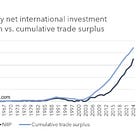



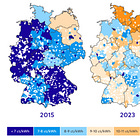
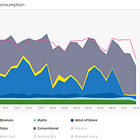
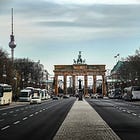
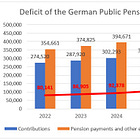
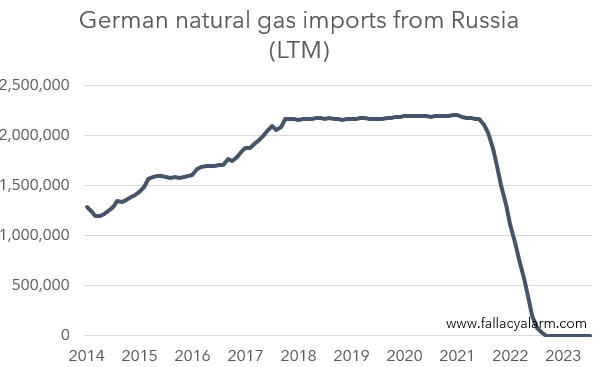
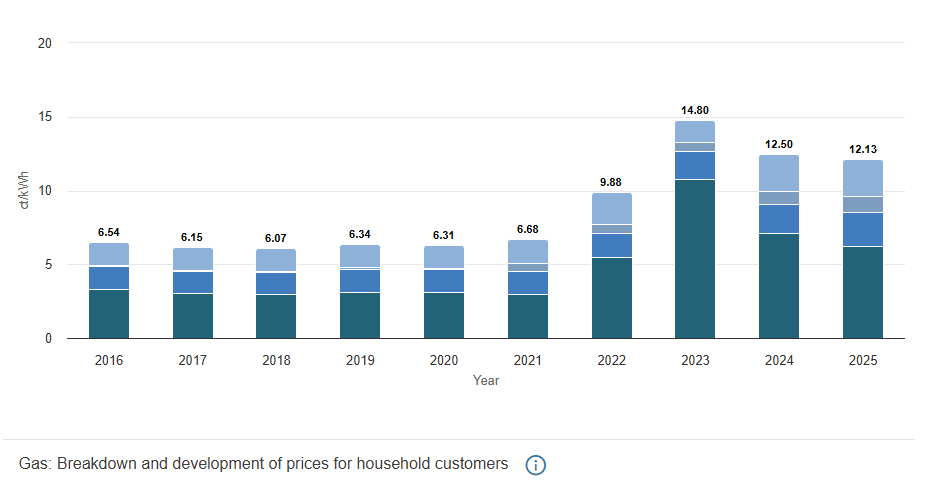
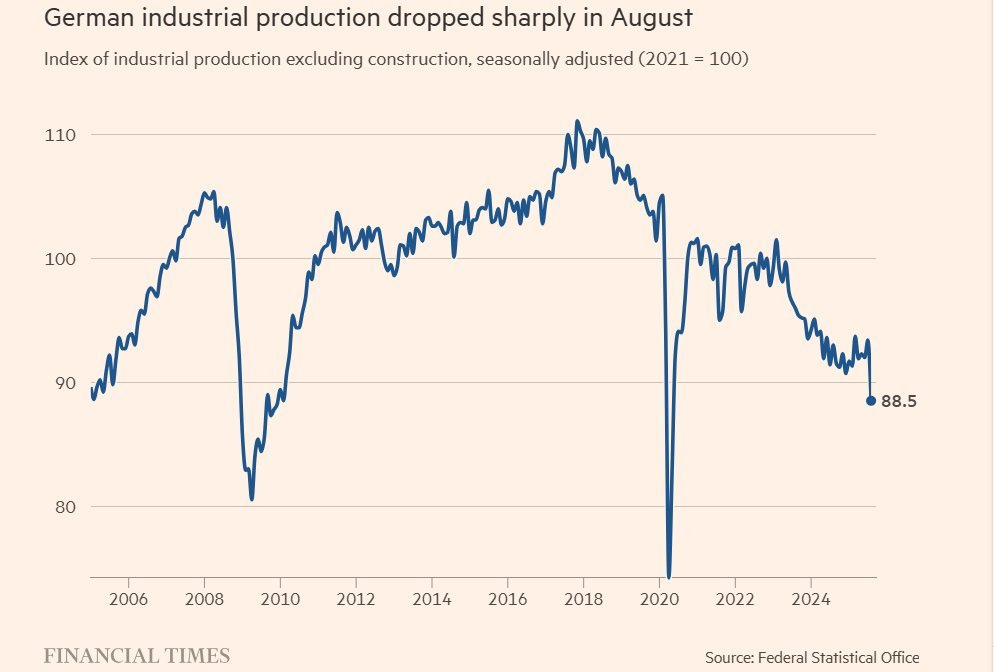
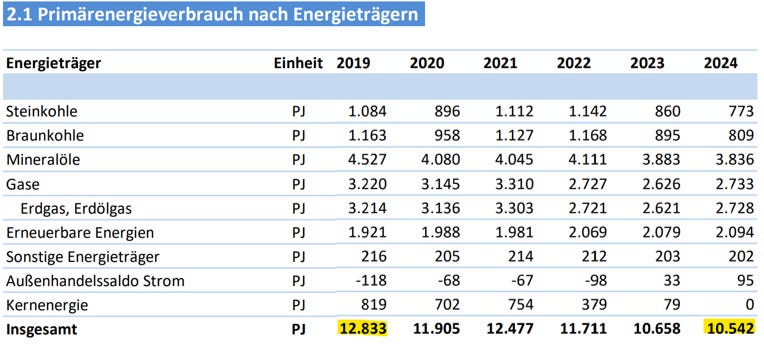
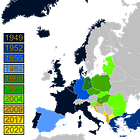


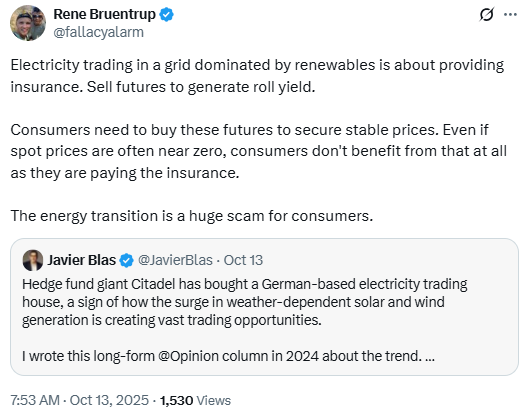
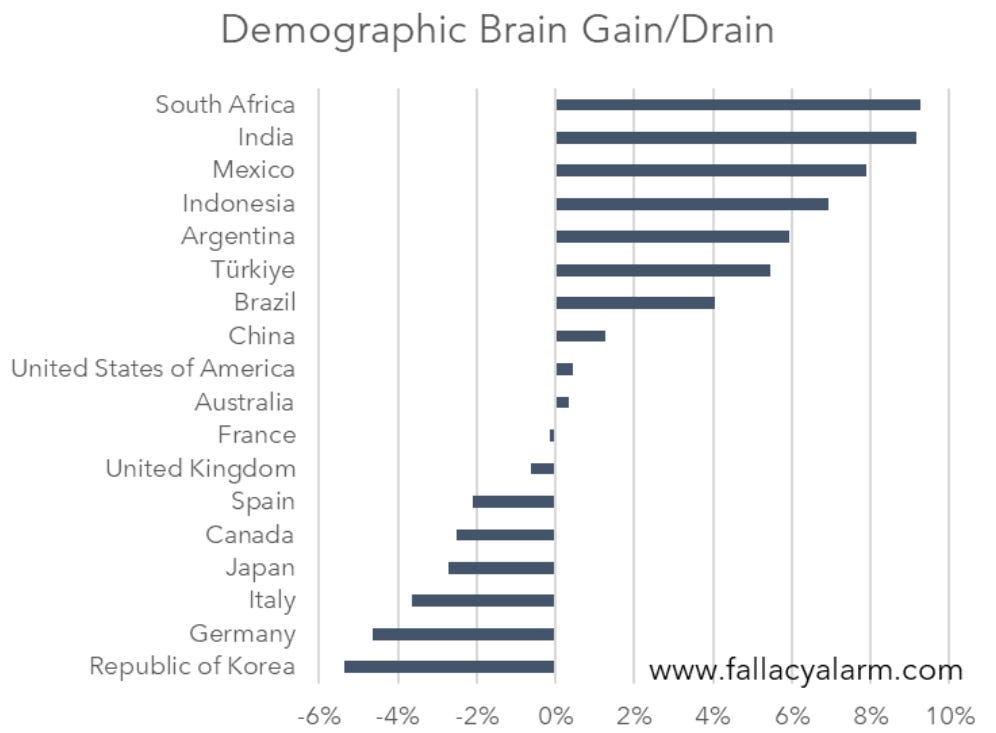
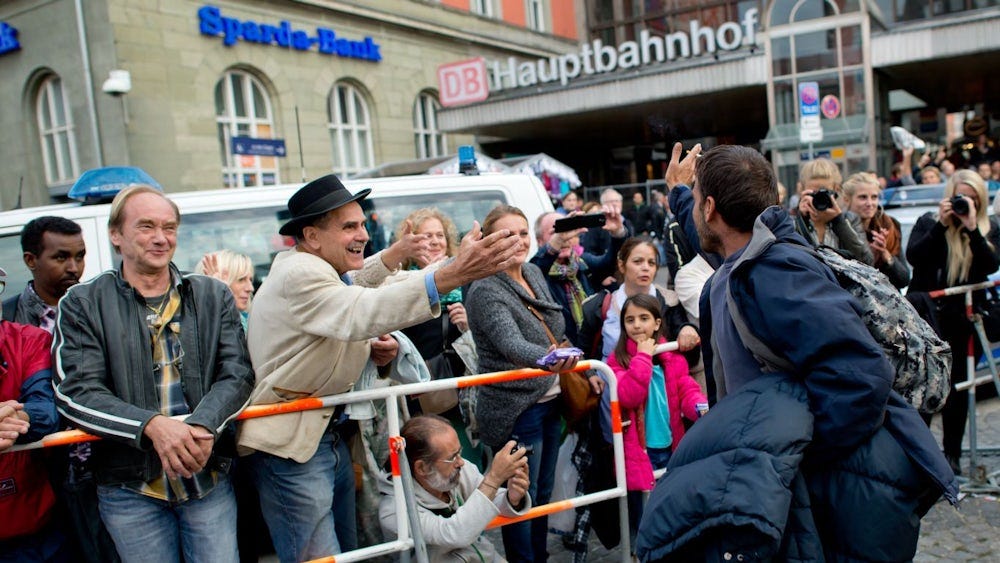
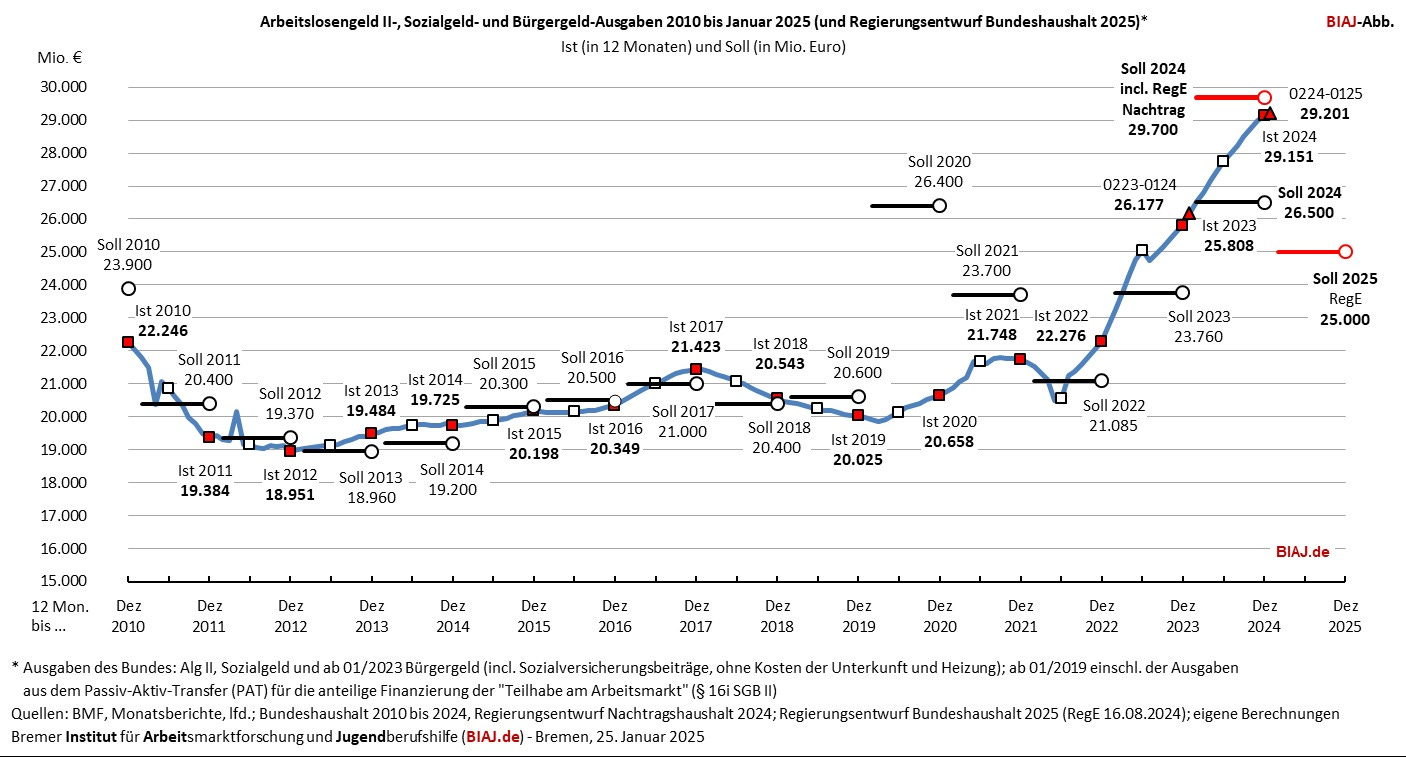
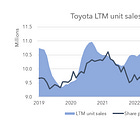
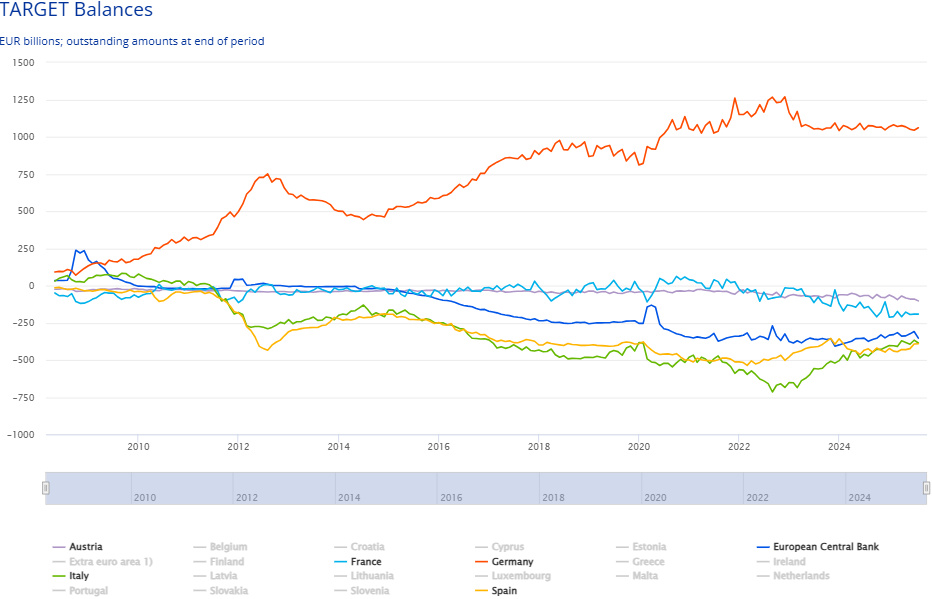
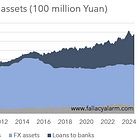

What a powerful manifesto! It's a shame that none of your key points will even be floated in the public discourse, let alone implemented, due to the ANGST of acting outside the boundaries of what's accepted and the German allergic reaction to challenging (moral) authority.